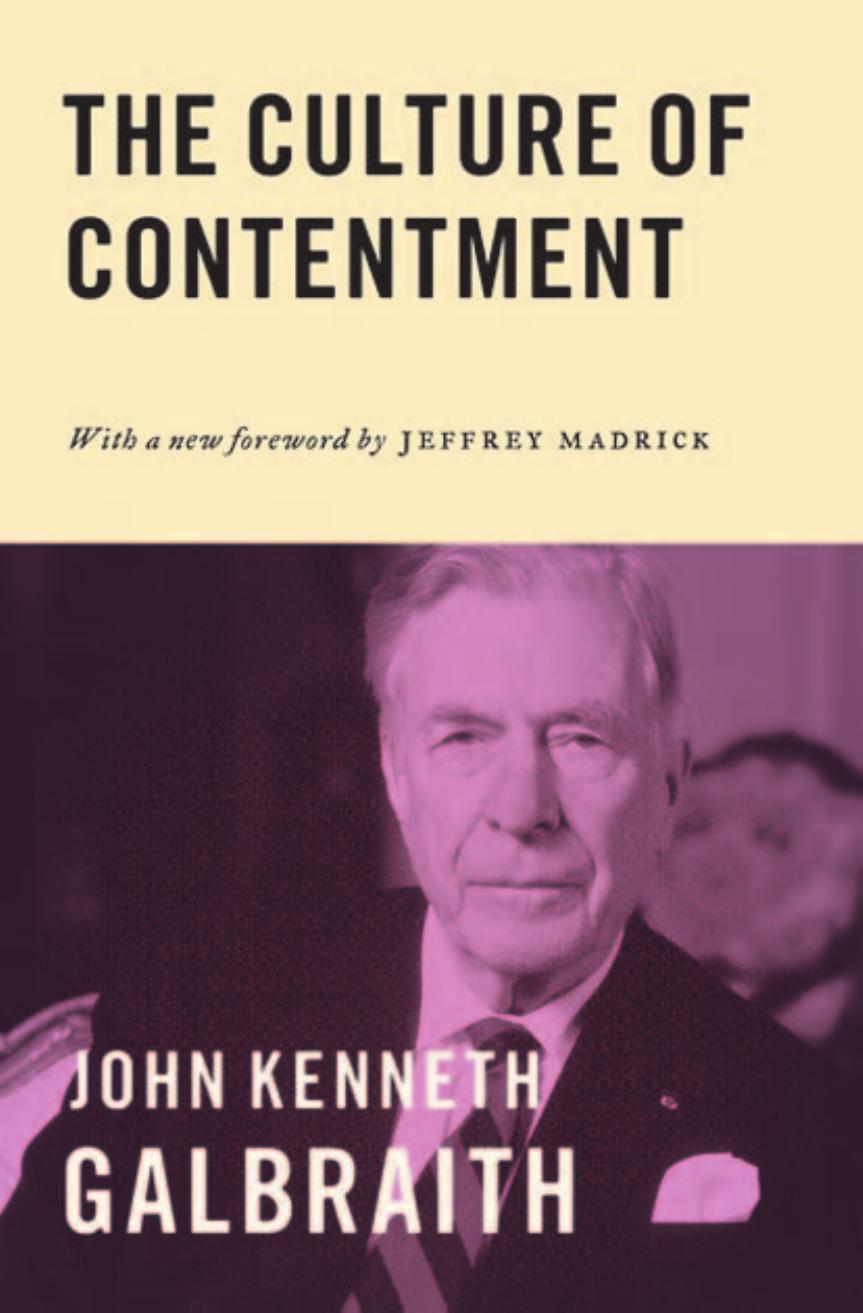

Most ebook files are in PDF format, so you can easily read them using various software such as Foxit Reader or directly on the Google Chrome browser.
Some ebook files are released by publishers in other formats such as .awz, .mobi, .epub, .fb2, etc. You may need to install specific software to read these formats on mobile/PC, such as Calibre.
Please read the tutorial at this link: https://ebookbell.com/faq
We offer FREE conversion to the popular formats you request; however, this may take some time. Therefore, right after payment, please email us, and we will try to provide the service as quickly as possible.
For some exceptional file formats or broken links (if any), please refrain from opening any disputes. Instead, email us first, and we will try to assist within a maximum of 6 hours.
EbookBell Team

4.1
30 reviewsThe world has become increasingly separated into the haves and have-nots. In The Culture of Contentment , renowned economist John Kenneth Galbraith shows how a contented class—not the privileged few but the socially and economically advantaged majority—defend their comfortable status at a cost. Middle-class voting against regulation and increased taxation that would remedy pressing social ills has created a culture of immediate gratification, leading to complacency and hampering long-term progress. Only economic disaster, military action, or the eruption of an angry underclass seem capable of changing the status quo. A groundbreaking critique, The Culture of Contentment shows how the complacent majority captures the political process and determines economic policy.
**
This is Galbraith's analysis of the bind we Americans have put ourselves in since Reagan-Bush. His thesis is that we have become a "culture of contentment" wherein the majority of those who vote are socially and economically advantaged and will fight like tigers to maintain that advantage by voting against increased taxation that would reduce the federal deficit and respond to aching social problems. "The result is government that is accommodated not to reality or common need but to the beliefs of the contented." "Having enough, many wish for more." Greed has thus given us reduced income taxes for the rich, Michael Milken, the S&L scandal, a bloated military, etc. What is needed is a return to strong governmental regulation, reduced military spending, and a stringent progressive income tax. Nothing "would so contribute to social tranquility as some screams of anguish from the very affluent" that would provide more money to public education, welfare services, employment training, public housing, and libraries. "The question . . . is not what can be done but what will be paid." Essential for all academic and public libraries. Previewed in Prepub Alert, LJ 12/91 . -- Jeffrey R. Herold, Bucyrus P.L., Ohio
Copyright 1992 Reed Business Information, Inc.
Dour perspectives on the post-Reagan state of the union. As a practical matter, Galbraith (Balancing Acts, 1989, etc.) charges, America has become the land of the fat, dumb, and happy. Drawing largely on anecdotal evidence, he asserts that a bipartisan majority of the prosperous and complacent now rules the nation ``under the rick cloak of...a democracy in which the less fortunate do not participate,'' mainly because they do not vote. For all their apparent heterogeneity, the author argues, the affluent share certain self-serving sentiments and penchants--including a belief that financial success is invariably the reward of merit, a preference for short-run serenity, a selective view of the state's role in the expenditure of public monies, and a remarkable tolerance for great disparities in income distribution. According to Galbraith, the consequences of these convictions are varied and lamentable. He contends, for example, that the federal government accommodates the affluent with tax cuts, plus sizable outlays for Social Security, Medicare, farm-price supports, deposit insurance, and military programs--all at the expense of a desperately impoverished underclass as well as a crumbling infrastructure. Nor does Galbraith put much stock in trickle-down theory, noting at one point that, if a horse is amply fed with oats, some will pass through to the road for sparrows. He warns that Washington's indulgent acceptance of anti-intervention and laissez-faire doctrine has given free rein to the self-destructive tendencies of modern capitalism--and whether the ensuant declines can be arrested, much less reversed, remains an open question in his mind. At a minimum, though, Galbraith insists that, if the US is ever again to commit itself to human needs within the framework of an equitable and dynamic society, political leaders must take vigorous fiscal, legislative, and regulatory action. Thought-provoking points of view from an elder eminence who can still abash not only stick-in-the-mud conservatives but also limousine liberals. -- Copyright ©1992, Kirkus Associates, LP. All rights reserved.